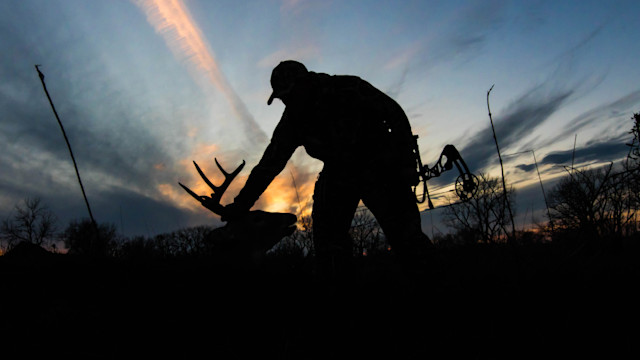This article will explore the traditional practices of hunting, fishing, and trapping as a means of survival in a wilderness scenario. It will discuss the benefits and challenges of these practices, as well as the necessary skills, equipment, and ethics involved.
Hunting, fishing, and trapping have been used for centuries as a means of survival in remote wilderness areas. While these practices may not be as essential in modern society, they are still relevant for those who live in rural areas or who face emergency situations where they must rely on their skills to survive.
This article will explore the benefits and challenges of hunting, fishing, and trapping and provide tips and guidance for those who may need to rely on these practices in a survival scenario.
Benefits of Hunting, Fishing, and Trapping
Hunting, fishing, and trapping offer several benefits for those who rely on them for survival, including:
- Access to Protein and Nutrients One of the most significant benefits of hunting, fishing, and trapping is access to protein and nutrients that may not be readily available in a wilderness setting. Wild game, fish, and trapping can provide essential vitamins and minerals that are necessary for a balanced and healthy diet.
- Self-Sufficiency By learning and practicing hunting, fishing, and trapping, individuals can become more self-sufficient, reducing their reliance on modern conveniences and technology.
- Connection to Nature Hunting, fishing, and trapping allows individuals to connect with nature and understand the rhythms and cycles of the natural world. It can also be a source of spiritual and emotional fulfillment.
Challenges of Hunting, Fishing, and Trapping
While there are many benefits to hunting, fishing, and trapping, these practices also come with challenges that must be addressed, including:
- Safety Concerns Hunting, and fishing can be dangerous activities that require a high degree of caution and skill. Failure to take necessary precautions can result in serious injury or even death.
- Ethical Considerations Hunting, fishing, and trapping require a strong sense of ethics and responsibility to ensure the humane treatment of animals and the protection of the environment.
- Legal Considerations Hunting, fishing, and trapping are regulated activities that require proper licenses and adherence to local and state laws. Failure to comply with these regulations can result in fines, legal charges, and the loss of hunting or fishing privileges.
Skills and Equipment for Hunting, Fishing, and Trapping
Hunting and fishing require specific skills and equipment to be successful. These may include:
- Hunting Skills Hunting requires knowledge of animal behavior, tracking, and shooting skills. Individuals must also have a strong understanding of safety, ethics, and legal regulations.
- Fishing Skills Fishing requires knowledge of fish behavior, bait selection, and casting techniques. Individuals must also have a strong understanding of safety, ethics, and legal regulations.
- Trapping Skills Trapping requires knowledge of animal behavior, trap selection and setting, and safety procedures. Individuals must also have a strong understanding of ethics and legal regulations.
- Equipment Hunting, fishing, and trapping require specific equipment, including firearms, fishing rods, and traps. Individuals must also have protective gear, such as safety glasses and ear protection, and appropriate clothing for the environment.
Ethics of Hunting, Fishing, and Trapping
Hunting and fishing require a strong sense of ethics and responsibility to ensure the humane treatment of animals and the protection of the environment. These may include:
- Respect for Wildlife Hunters, fishers, and trappers must treat wildlife with respect and dignity, following proper procedures for dispatching and handling animals.
- Adherence to Regulations Hunters, fishers, and trappers must adhere to local and state regulations, including obtaining proper licenses and permits, following bag limits, and using legal equipment.
- Conservation and Stewardship Hunters, fishers, and trappers must act as stewards of the environment, respecting the land and wildlife, and doing their part to conserve natural resources for future generations.
- Community Involvement Hunters, fishers, and trappers should be involved in their local communities and take an active role in conservation efforts, wildlife management, and education.
Tips for Successful Hunting, Fishing, and Trapping

- Know the Law Before heading out into the wilderness, be sure to familiarize yourself with local and state regulations regarding hunting, and fishing. Ensure that you have the necessary licenses and permits and follow all bag limits and legal equipment requirements.
- Practice Safety Hunting, fishing, and trapping can be dangerous activities, so it’s essential to prioritize safety at all times. Always wear appropriate protective gear and follow proper safety procedures when handling firearms, fishing equipment, and traps.
- Respect the Environment As a hunter, fisherman, or trapper, you are a steward of the environment. It’s crucial to respect the land and wildlife and do your part to conserve natural resources. This includes disposing of waste properly and minimizing your impact on the environment.
- Be Patient and Persistent Hunting, fishing, and trapping require patience and persistence. Be prepared to spend long hours in the wilderness and be ready for unexpected challenges and setbacks.
- Continually Learn and Improve The more you know about hunting, fishing, and trapping, the more successful you will be. Continually seek out opportunities to learn new skills, techniques, and information about the natural world and the animals you are pursuing.
Conclusion
Hunting, fishing, and trapping are traditional practices that have been used for centuries to survive in the wilderness.
While modern society has made these practices less essential for many individuals, they are still relevant for those who live in rural areas or may face emergency situations where they must rely on their skills to survive.
By prioritizing safety, ethics, and conservation, hunters, fishers, and trappers can make a meaningful contribution to their communities and the natural world while enjoying the benefits of self-sufficiency and a deep connection to nature.




